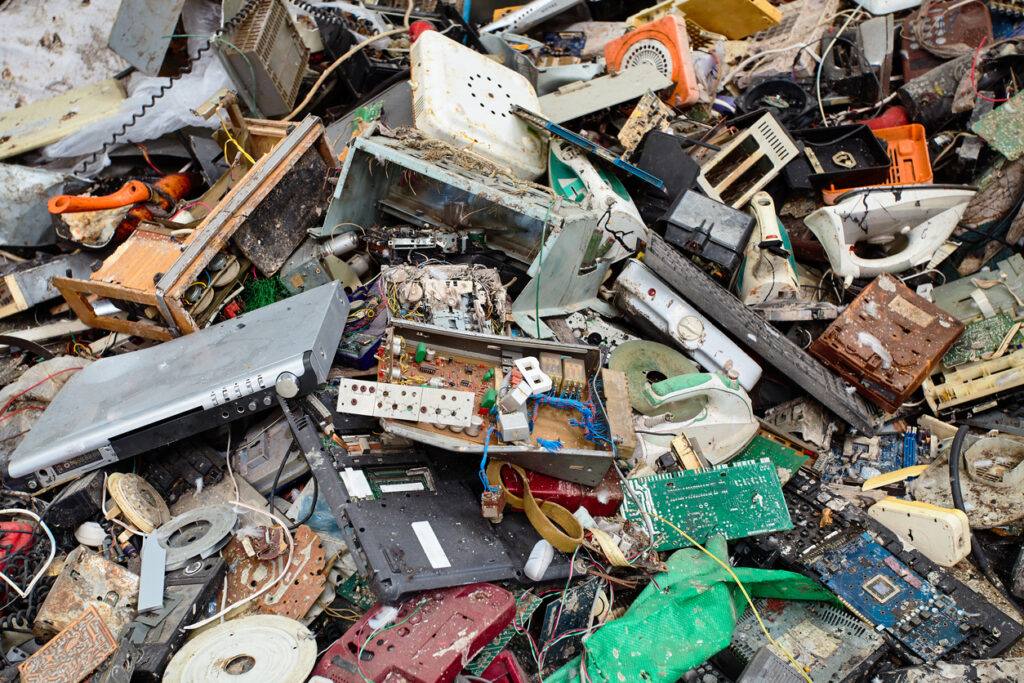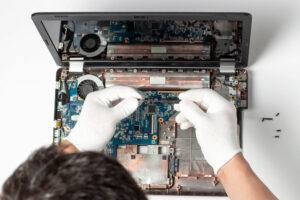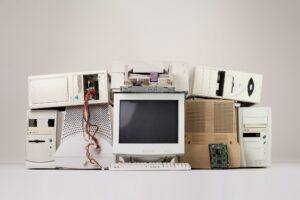Our mission and passion is to protect our clients’ brands through proper data destruction techniques.
It’s not an easy business.
But doing the right thing isn’t always easy.
Here’s The Common Process:
Most data destruction entities ship their wholesale scrap to a foreign country because they’ll receive a more substantial and immediate profit.
However, that’s the least secure way to handle hardware that’s full of sensitive information.
Recently, a company sent its outdated hardware to a small-scale electronics recycler just outside of Ohio. This recycler then sent the hardware in bulk overseas.
While this might initially sound like a respectable business model, this company chose this recycler to completely destroy all sensitive data. But this recycler can’t truly know that the information is safe if it’s overseas.
Learn about Cobalt’s in-house ITAD process here.
Every time another organization or process enters your downstream, so can unforeseen risks.
Many times, electronic assets with potentially sensitive information have been discovered in overseas landfills. These third-party companies tend to think that “no one will ever know,” but that’s the whole problem:
All it takes is one person to find and distribute the data stored on a hard drive in this landfill.
This single person and this single hard drive can put your entire organization’s sensitive data at risk.
That’s Why We Keep Things In-House
Cobalt doesn’t depend on a third party for data destruction. We use our in-house shredder, which eliminates the need to dispose of the material or hardware in question improperly.
We want to recycle everything possible, and our certifications ensure we do exactly that. For example, even if we have a wood plank, we have to provide evidence that we at least tried to recycle it.
What Happens to the Trash?
If there’s a material byproduct that would usually be referred to as waste, such as foam, we’ll transport it to our business partner who will repurpose it as fuel.
Fuel is a valuable form of energy, and we’re proud to say that we create this value from the same material that most companies label as garbage.
So, what’s next?
Will the industry change as the technology industry advances?
IT asset disposition specialists like Cobalt will likely be required to meet more certification standards as technology advances and more everyday products are connected to the IOT (internet of things).
As this technology equipment evolves, so does the accompanying documentation.
The industry sees changes about every five years. With each change, a new revision is released as a new mandatory certification.
It’s also likely that new certifications will be developed to address specific sectors and services. Currently, electronics recycling certifications serve as a catch-all for all businesses in the ITAD and recycling space.
Why Choose Cobalt for Data Destruction?
We have a 100,000 square-foot facility that is fully equipped to handle both the reuse process and end-of-life asset management within our own four walls.
In addition, Cobalt is a R2 certified entity, which means Cobalt is held to a higher standard for responsible recycling.
Out of the ten provisions covered by R2, the ones we think make the most difference to our clients are those that hold us accountable for prioritizing reuse and recovery, vetting our downstream vendors, and ensuring total data destruction or sanitization.
Cobalt is a one-stop-shop for doing everything the right way.





